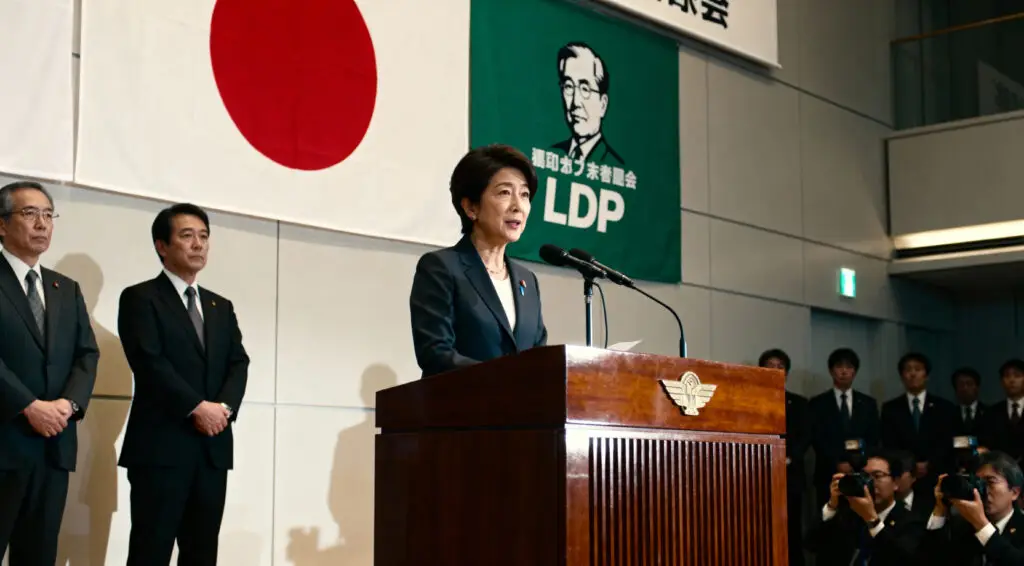A Surprise Victory With Movement‑Defining Rhetoric
Sanae Takaichi’s hardline campaign, derided as fringe by many pundits, galvanized the base. Her focus on cultural grievance, border control, and tradition reframed the LDP race. Party members prioritized conviction over electability narratives prevalent in media polling. The outcome crowned the LDP’s first female president and signaled a rightward turn.

Echoes of America’s Polarization Cycle
Observers drew parallels to the United States’ post‑2016 political realignment. Provocative messaging dismissed as unelectable often proved mobilizing among disaffected voters. Social platforms rewarded outrage, deepening identity blocs and punishing consensus figures. Japan’s timeline appears compressed, importing tactics and tempo from abroad.
Recommended Article: Japan Coalition to Endorse Takaichi as First Female Prime Minister
Polls, Party Members, and a Different Electorate
Surveys of general supporters favored a more moderate alternative leading into the vote. Inside the party, however, activists and local machines backed Takaichi decisively. The gap highlights how selectorates can diverge from national public sentiment. Internal rules, not national polling, decided the contest’s pivotal ballots.
Coalition Strain: Komeito Walks Away
The LDP‑Komeito partnership unraveled amid policy and tone disagreements. Komeito cited funding‑law reform disputes, but analysts pointed to deeper ideological rifts. A more nationalist LDP reduces room for compromise on civil‑society issues. The split injects uncertainty into legislative arithmetic and cabinet formation.
Policy Flashpoints Behind the Cultural Frame
Beyond rhetoric, concrete issues sharpened factional lines inside the coalition. Debates over LGBT understanding legislation and surname options became litmus tests. Immigration enforcement and education content joined a menu of mobilizing topics. These fights mirror global culture‑war portfolios adapted to Japanese contexts.
Media Dynamics and the Outrage Incentive
Traditional outlets initially dismissed maximalist appeals as self‑defeating. Yet attention economies on social media rewarded repetition and escalation. Activists mastered short‑form clips and emotive hooks that outpaced policy briefs. The feed became the arena where momentum—and mis/disinformation—compounded rapidly.
Unknowns: Prime Minister Selection and Governing Blocks
With coalition math unsettled, leadership and cabinet outcomes remain fluid. Compromise figures could emerge, or hardliners might consolidate further control. Either path will shape budget priorities, diplomatic posture, and social policy signals. Markets and allies will parse appointments for clues to governing style.
Outlook: Navigating a Polarized Decade
Japan confronts the management challenge of pluralism under faster, harsher information cycles. Institutions will be tested on campaign finance, media literacy, and coalition practice. Civil society and business groups may become ballast as parties jockey. The near term promises contested politics; the task is keeping governance steady.























